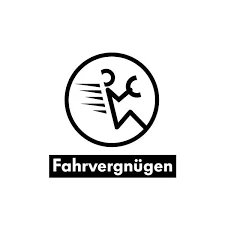Fahrvergnügen

Given that the car was more or less invented in Germany, and given that German is a language in which you can create compound words with subtle and complex meanings, it’s not surprising that there’s a German word that all true drivers can relate to, even if we’ve never come across the word before or if we don’t speak German. This word is “fahrvernügen”, which means something like “the pleasure of driving” or “the joy of travelling”.
OK, to be fair, the word isn’t a traditional one, and it was probably coined in the 1990s as part of a Volkswagen ad campaign that ran in the US. However, that was around 30 years ago (feeling old now?) and just because a word was made up for advertising purposes doesn’t mean that it’s not legitimately part of the vocabulary, especially when it’s a useful term that describes an everyday activity or need. By way of comparison, fahrvergnügen is older than the English verb “to google” and nobody will challenge the idea that “google” is a legitimate verb. As far as I can work out, fahrvergnügen is an official German word.
And no wonder it’s become official, no matter how it entered the language. I’m kind of surprised that it wasn’t around before the 1990s, as it’s certainly a thing that most of us can relate to, no matter what language we speak. For some people, it’s the thrill of pushing down the throttle and feeling the acceleration and the blur of speed. For some, it’s the sideways G-forces as you put something with exquisite handling around a particularly curvy piece of road. For others, it’s the feeling of being in control. For others, it’s the combination of the car’s sound and personality. And for others, it’s just the satisfaction and pleasure of getting out of one’s usual surroundings and going somewhere else.
German has a few other words with no English equivalent that have their uses in the world of cars, driving and automotive topics that most drivers can relate to. Here’s a selection:
- Fernweh – a longing for far-off places
- Kabelsalat (literally “cable salad”) or a mess of cables, which is what you’ll be greeted with when trying to check the fuses or to install a new speaker in any modern car.
- Schilderwald (literally: “shield forest”): a street so full of signs that it’s more likely to make you lost and confused than otherwise.
- Schlimmbesserung: A tweak or update that was supposed to improve things but actually makes things worse. The related verb is “Verschlimmbessern”. I think we can all think of examples, but I’m not stupid enough to name them, even for the sake of schadenfreude (the pleasure of seeing other’s misfortune).
- Autobahn: I think we don’t have this one because we don’t have autobahns; we just have motorways that have set speed limits.
Just for the fun of it, other languages also have some words with no English equivalent that most drivers can relate to, like the following:
- Akihi (Hawaiian): to get instructions or directions, then forget them completely when you try to apply them.
- Gilchi (Korean): Someone who has a terrible sense of direction and gets lost all too easily.
- Resfeber (Swedish): that feeling of nerves, excitement and anticipation before a journey begins.
And what about that other German phrase we see frequently in the automotive world, namely Audi’s slogan of “Vorsprung durch Technik”? Well, this means something like “advancement/progress through technology” or “the technical edge” or “technological advantage”. In fact, Audi tried to get this phrase trademarked, but this led to a long and complicated court case – which is a good story for another time, to quote the Star Wars sequels.
Anyway, even if you never came across the original fahrvergnügen ad campaign, I’m sure that you’ve experienced the concept all the same. Tell us in the comments what makes up fahrvergnügen for you.